hitchhiker’s guide to the galaxy prompt
The Hitchhiker’s Guide to the Galaxy is a comedic science fiction series by Douglas Adams, following Arthur Dent’s misadventures through space after Earth’s destruction.
1.1 Overview of the Book Series
The Hitchhiker’s Guide to the Galaxy is a series of comedic science fiction books by Douglas Adams, exploring themes of humor, satire, and existentialism. The series follows the misadventures of Arthur Dent, a human who escapes Earth’s destruction, and his alien friend Ford Prefect. It expands into a trilogy of five books, including The Restaurant at the End of the Universe, Life, the Universe and Everything, and So Long, and Thanks for All the Fish. The series blends wit, absurdity, and philosophical questions, making it a cult classic.
1.2 Importance of the Guide in the Storyline
The Hitchhiker’s Guide to the Galaxy serves as a central plot device, offering advice to intergalactic travelers. This electronic guidebook becomes Arthur Dent’s lifeline, providing crucial information about alien species, planets, and technologies. Its entries often include humorous yet insightful commentary, reflecting the series’ satirical tone. The Guide’s significance extends beyond utility; it symbolizes the quest for knowledge and understanding in an vast, unpredictable universe. Its iconic status is reinforced by its popularity among travelers like Ford Prefect and Arthur, making it an indispensable element in their cosmic journey.
Origins of The Hitchhiker’s Guide to the Galaxy
The Hitchhiker’s Guide to the Galaxy originated as a BBC radio series in 1978, conceived by Douglas Adams, blending humor and science fiction to explore the cosmos.
2.1 Douglas Adams as the Author

Douglas Adams, a British author, is renowned for his wit and creativity. He wrote The Hitchhiker’s Guide to the Galaxy, blending humor with science fiction. Adams’ unique voice and imaginative storytelling captivated audiences. His background in radio and television, including work on Doctor Who, influenced his dynamic narrative style. The series originated from a radio concept, showcasing Adams’ ability to adapt ideas across mediums. His humor and satirical take on life and the universe made the book a cult classic, resonating with readers worldwide and cementing his legacy as a visionary writer.
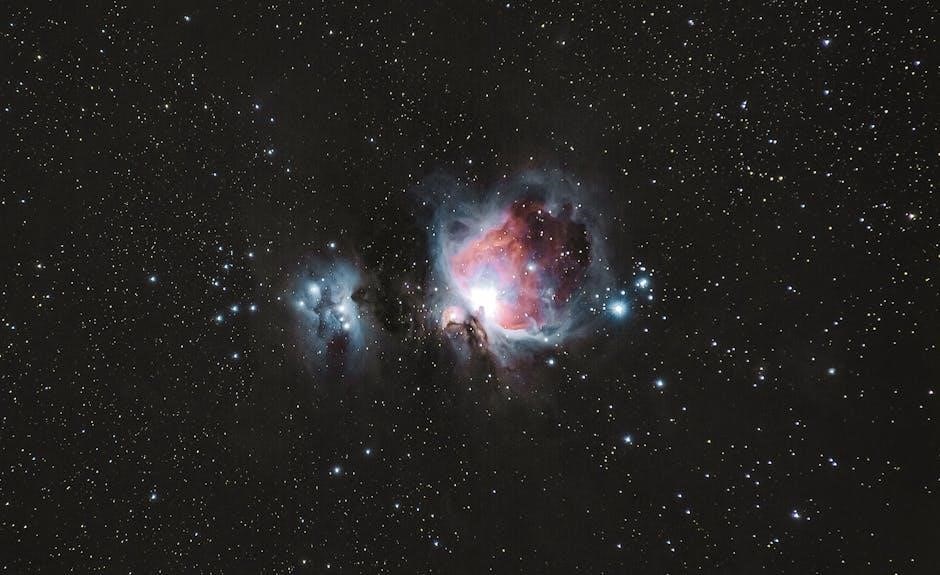
2.2 The Radio Series that Started It All
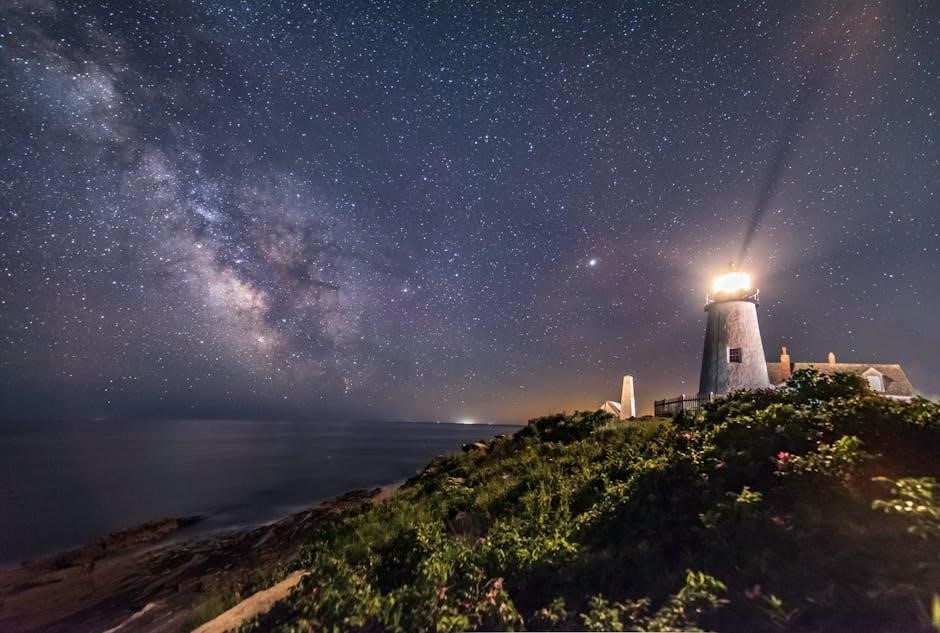
The Hitchhiker’s Guide to the Galaxy began as a groundbreaking radio series on BBC Radio 4 in 1978. This six-part comedy science fiction program, written by Douglas Adams, introduced the universe to the misadventures of Arthur Dent and his alien friend Ford Prefect. The series’ unique blend of humor, absurdity, and intelligent storytelling captivated audiences. Its success led to the expansion of the story into novels, television, and film. The radio series remains a cherished foundation of the franchise, showcasing Adams’ innovative storytelling and setting the stage for its cult following across multiple mediums.
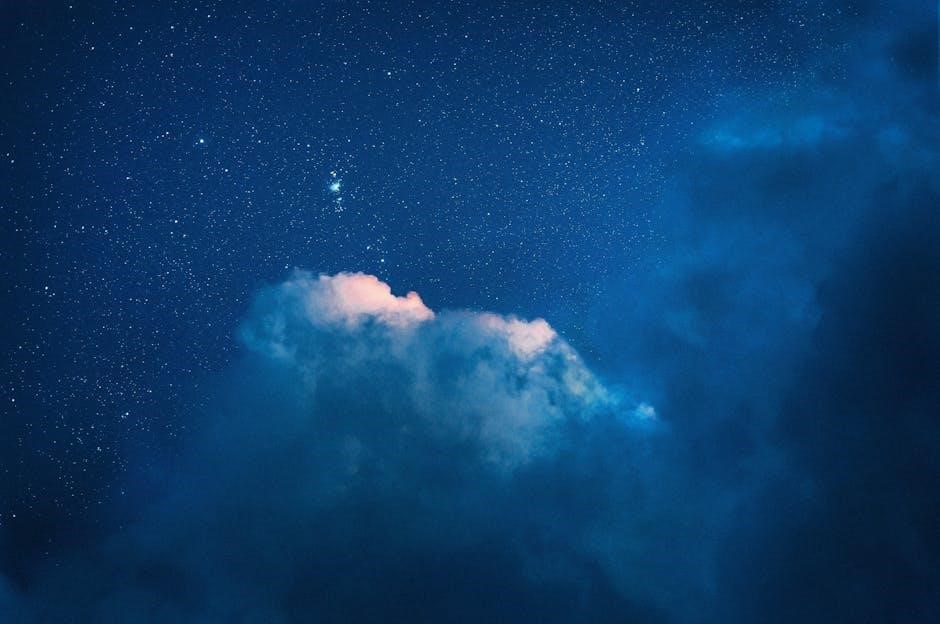
Main Characters in The Hitchhiker’s Guide to the Galaxy
The series features a diverse cast of eccentric characters, including Arthur Dent, Ford Prefect, Trillian, Marvin, and Zaphod Beeblebrox, each contributing unique humor and depth to the story.
3.1 Ford Prefect: The Alien Researcher
Ford Prefect is an alien researcher from Betelgeuse, working on the Hitchhiker’s Guide to the Galaxy. He rescues Arthur Dent just before Earth’s destruction, showcasing his resourcefulness. Known for his calm demeanor and intergalactic knowledge, Ford embodies the series’ blend of humor and sci-fi. His friendship with Arthur highlights his pivotal role in the story, navigating cosmic adventures and providing comedic relief. Ford’s character exemplifies Douglas Adams’ ability to craft unique, memorable personalities that drive the plot forward while adding depth to the narrative.
3.2 Arthur Dent: The Last Human
Arthur Dent is an ordinary Earthman who becomes the last human survivor after Earth’s destruction. Rescued by Ford Prefect, he embarks on a journey through space. Arthur’s relatable struggles, humorously portrayed, highlight his humanity amidst cosmic chaos. His friendship with Ford and other characters underscores his adaptability and resilience. As the story progresses, Arthur evolves from a clueless Earthling to a seasoned space traveler, navigating the absurdities of the universe. His character serves as the audience’s emotional anchor, making the fantastical elements of the story relatable and endearing.
3.3 Trillian: The Human Companion
Trillian is a human woman who hitches a ride on a passing spaceship, inadvertently escaping Earth’s destruction. She joins Arthur Dent on the Heart of Gold, showcasing her adventurous spirit. Trillian’s practicality and emotional stability often contrast with the chaos around her. Her interactions with Arthur highlight their shared humanity, forming a bond that adds depth to the story. Trillian’s independence and resilience make her a strong, memorable character, even as she navigates the absurdities of the universe alongside her companions. Her presence underscores the human element in an otherwise alien-dominated narrative.
3.4 Marvin: The Paranoid Android
Marvin is a deeply depressed paranoid android, created by the Sirius Cybernetics Corporation. His pessimistic outlook on life is unmatched, often expressing despair and hopelessness. Marvin’s intellect is vast, but his constant focus on the futility of existence overshadows his abilities. Despite his gloomy demeanor, he occasionally displays a dry, witty sense of humor. Marvin’s interactions with Arthur Dent and other characters highlight his sarcastic yet endearing personality. His famous line, “Life is an emotional hazard,” encapsulates his worldview. Marvin’s character serves as a darkly comedic relief, adding depth to the story’s exploration of existential themes. His presence reminds the crew of the complexities of artificial intelligence and emotion.
3.5 Zaphod Beeblebrox: The Two-Headed President
Zaphod Beeblebrox is the charismatic and eccentric two-headed president of the galaxy. Each head has distinct personalities, contributing to his unpredictable nature. His left head is rational, while his right head is impulsive. Zaphod’s charm and confidence often lead the crew of the Heart of Gold into chaotic situations. As a political figure, his presidency is marked by corruption and self-interest, yet he remains a key figure in the story. His adventures with Ford Prefect and Arthur Dent showcase his cunning and recklessness, making him a central character in the series’ humor and plot development. His dual heads symbolize his conflicted yet dynamic personality.
Key Concepts and Themes
Key concepts include the search for the Ultimate Answer (42), the supercomputer Deep Thought, and the Vogons’ role in Earth’s destruction. These themes explore humor, existentialism, and bureaucracy.
4.1 The Ultimate Answer to Life, the Universe, and Everything
The Ultimate Answer, famously revealed as 42, is the result of a colossal mathematical calculation by the supercomputer Deep Thought. However, the actual question remains unknown, sparking existential debates among characters. This concept symbolizes the futility of seeking simple solutions to life’s complexities. The number 42 becomes a recurring motif, representing both wisdom and absurdity. It underscores Douglas Adams’ humor and his critique of over-reliance on technology for life’s profound mysteries.
4.2 The Supercomputer Deep Thought
The supercomputer Deep Thought was created to find the Ultimate Answer to Life, the Universe, and Everything. Designed by hyper-intelligent beings, it took 7.5 million years to compute the answer, famously revealed as 42. However, the lack of a clear question left the characters perplexed. This monumental effort highlights the futility of seeking simplistic solutions to complex existential questions. Deep Thought’s creation and operation underscore the blending of humor and philosophy in Douglas Adams’ work, critiquing humanity’s reliance on technology for ultimate truths.
4.3 The Role of the Vogons
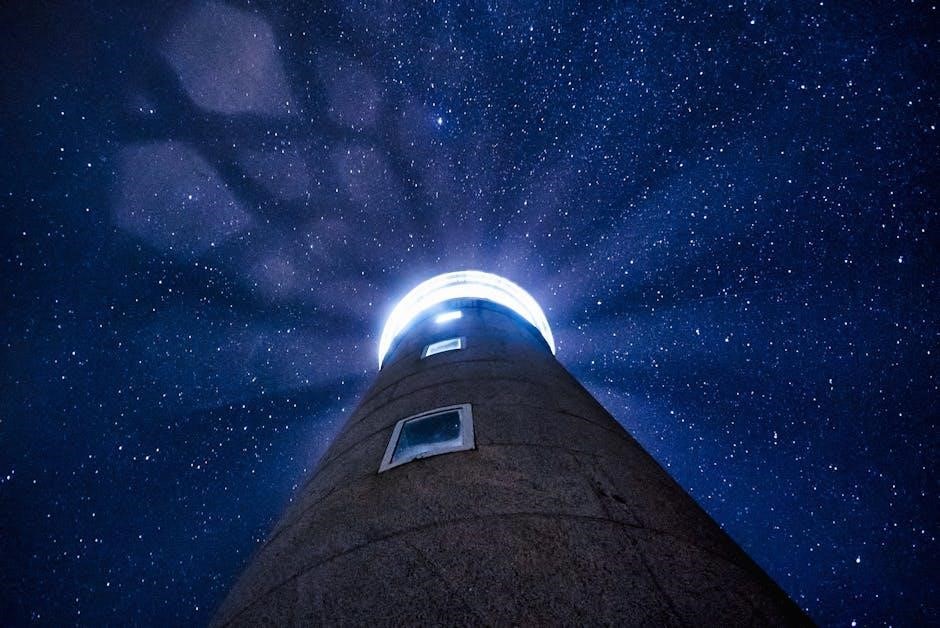
The Vogons are a race of bureaucratic, unpleasant aliens who destroy Earth to build a hyperspace bypass. They embody the worst of red tape and indifference, serving as comic antagonists. Their role highlights the absurdity of governmental inefficiency. Vogons are also known for their terrible poetry, which they force on others. Their destruction of Earth propels the story, showcasing their disregard for life. This reflects Adams’ satire on authority and the often illogical nature of bureaucratic systems, making them both a obstacle and a source of dark humor for the characters. Their actions drive the plot’s chaos and unpredictability.
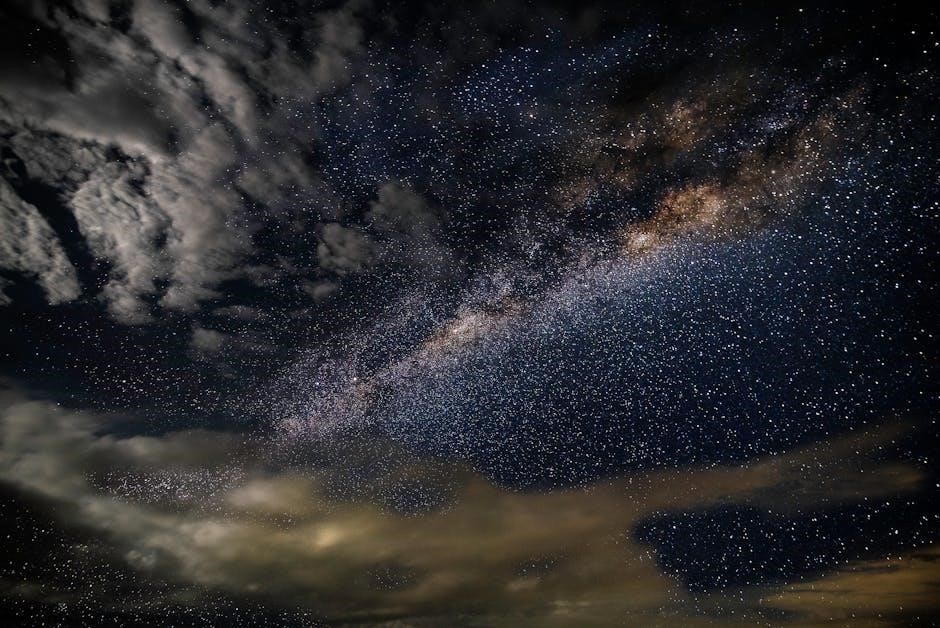
The Restaurant at the End of the Universe
The Restaurant at the End of the Universe is a luxurious eatery where patrons watch the cosmos while dining, emphasizing its significance in the story’s progression.
5.1 Description of the Restaurant
The Restaurant at the End of the Universe is a fantastical dining establishment situated at the edge of time and space. It offers an extraordinary culinary experience, allowing patrons to witness the birth and destruction of countless universes while enjoying exotic dishes. The restaurant’s ambiance is both surreal and opulent, featuring live entertainment and a diverse clientele of intergalactic beings. Its unique location enables guests to see the entire lifespan of the cosmos unfold before their eyes, making it a truly unparalleled destination in the galaxy.
5.2 Its Significance in the Story
The Restaurant at the End of the Universe plays a pivotal role in advancing the narrative and exploring key themes. It serves as a hub for characters like Zaphod, Trillian, and Marvin, facilitating crucial interactions and revelations. The restaurant’s unique location allows the group to witness the destruction of Earth again, underscoring the book’s themes of impermanence and existential humor. Additionally, it introduces theTotal Perspective Vortex, a concept that reinforces the futility of human understanding in an infinite universe. This setting enriches the story’s philosophical depth while maintaining its comedic tone.
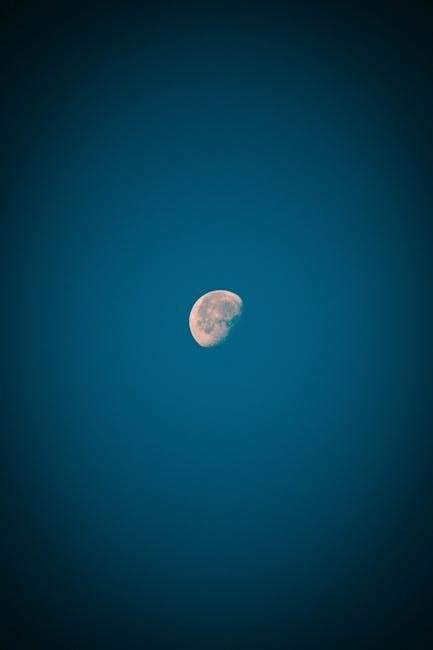
The Heart of Gold
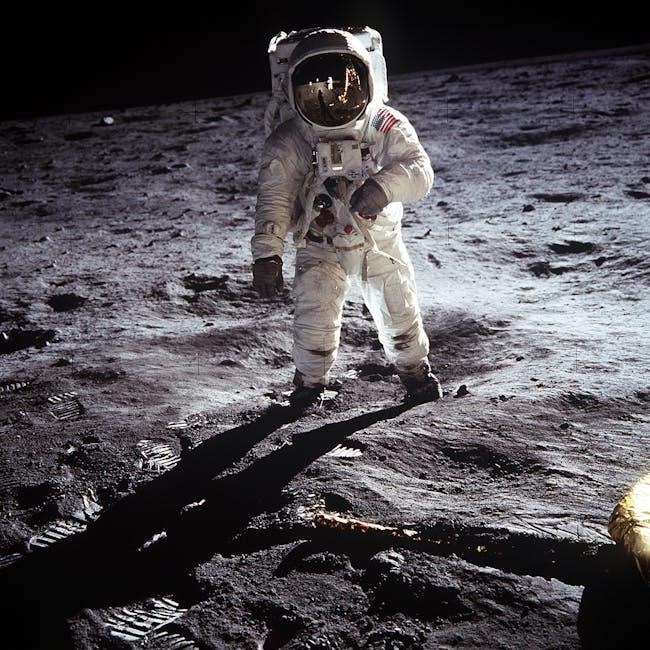
The Heart of Gold is the group’s trusty spaceship, central to their interstellar adventures. It symbolizes both their survival and the book’s themes of cosmic absurdity and exploration.
6.1 The Ship’s Unique Features
The Heart of Gold, stolen by Zaphod Beeblebrox, is equipped with the Infinite Improbability Drive, enabling faster-than-light travel by manipulating probability. This revolutionary technology allows the ship to traverse vast distances instantaneously, making it one of the most advanced vessels in the galaxy. Its sleek design and futuristic capabilities contrast with its quirky, eccentric interior, reflecting the personalities of its crew. The ship’s unique features also include its ability to evade detection and its role in navigating the absurdities of space, making it central to the adventurers’ survival and journey through the cosmos.
6.2 Its Role in the Adventurers’ Journey
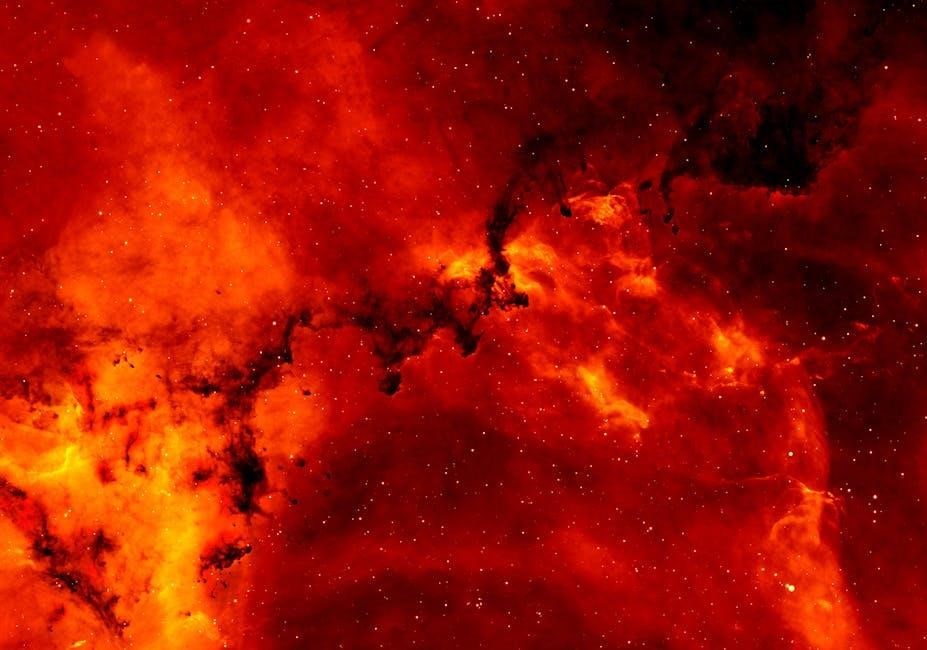
The Heart of Gold serves as the primary vessel for the protagonists, enabling their escape from Earth’s destruction and facilitating their intergalactic travels. Its Infinite Improbability Drive allows the crew to evade the Vogons and explore distant worlds. The ship’s speed and advanced technology make it crucial for navigating the dangers of space. It also serves as a refuge for Arthur, Ford, Trillian, and Marvin as they uncover the mysteries of the universe. The Heart of Gold’s role is central to the story, connecting key plot points and enabling the adventurers to reach destinations like Magrathea and the Restaurant at the End of the Universe.
Cultural Impact and Legacy
The Hitchhiker’s Guide to the Galaxy has left a lasting mark on popular culture, inspiring TV shows, films, and loyal fans worldwide with its unique blend of humor and intellect.
7.1 The Book Series’ Popularity
The Hitchhiker’s Guide to the Galaxy series has gained a massive global following, celebrated for its witty humor and intelligent storytelling. Fans adore its unique blend of satire and science fiction, making it a cult classic. The books have sold millions of copies worldwide, resonating with readers of all ages. Its quirky characters and absurd scenarios have become iconic in popular culture, further cementing its status as a beloved literary treasure.
7.2 Adaptations into TV and Film
The Hitchhiker’s Guide to the Galaxy has been adapted into various TV series and a feature film, each capturing the essence of Douglas Adams’ humor and creativity. The 2005 film, starring Martin Freeman as Arthur Dent, brought the story to a wider audience, blending visual effects with the original’s charm. Additionally, radio dramas and stage plays have further popularized the series, ensuring its timeless appeal across different mediums and generations of fans.
